I completed all my science degrees at the University of Pretoria after some time at Wits studying law. I was fortunate to be appointed at Stellenbosch University in 2000, spent 2001 in France, and returned to Stellenbosch University in 2002 where I worked first as a Senior Technical Officer, then as a Researcher and finally an Associate Professor before relocating to the University of Johannesburg in 2011, 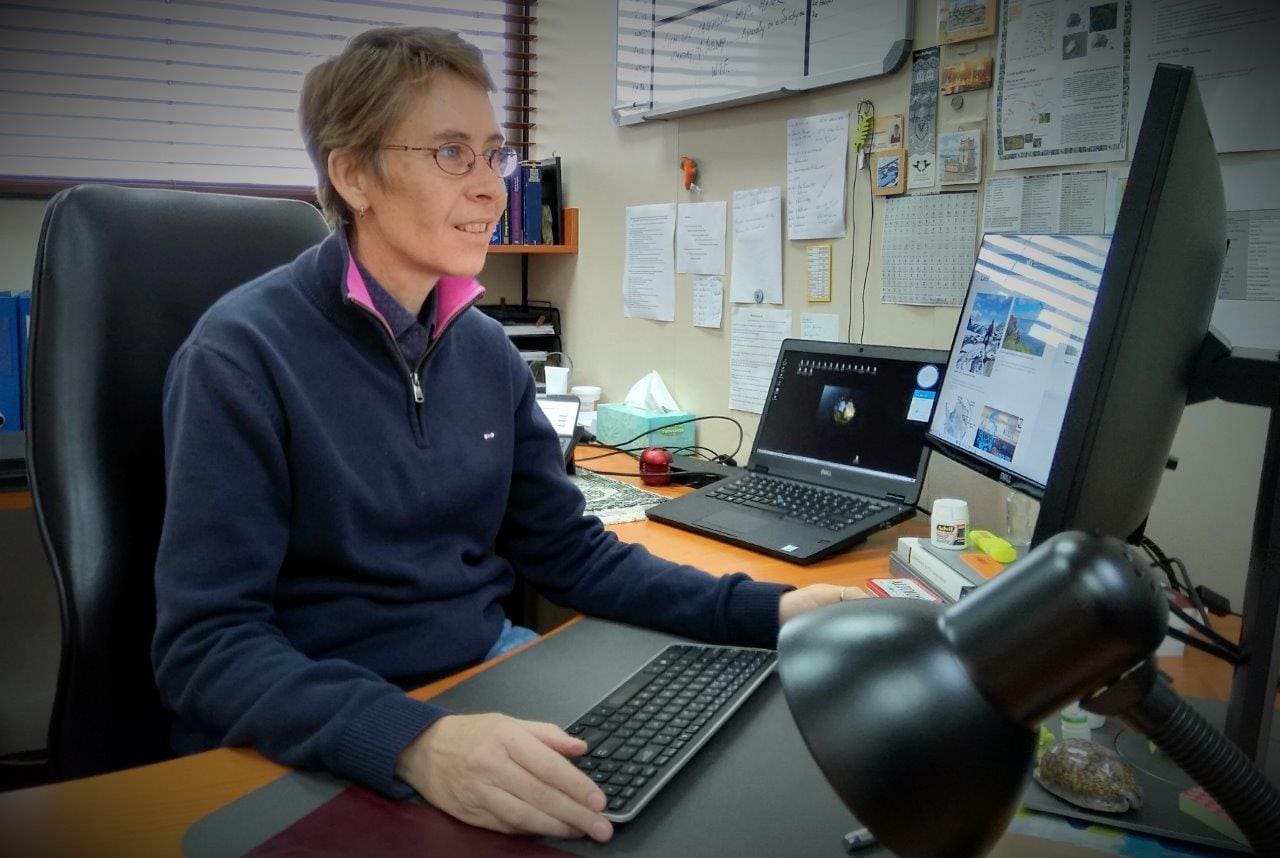 and became a Full Professor in 2012. Our research group at UJ transitioned into a Research Centre, and we currently house a number of postdoctoral fellows and postgraduate students. We have collaborations with a number of groups both within South Africa, and internationally.
and became a Full Professor in 2012. Our research group at UJ transitioned into a Research Centre, and we currently house a number of postdoctoral fellows and postgraduate students. We have collaborations with a number of groups both within South Africa, and internationally.
I have been involved in research on the Prince Edward 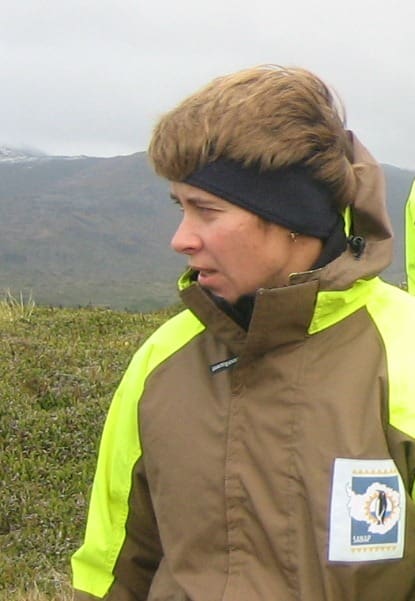 Islands since 2004 and have been fortunate to work with some of the legends as well as bright upcoming researchers (then students, now fully established and leading their own research groups). For my sins, I was appointed as Chief shore-based Scientist in 2006 (the first time that a woman held this position), and managed to get all people to relevant huts on time, even though we almost had to put together a rescue party to retrieve Valdon Smith and Sarette Slabber from Mixed Pickle (typical Marion Island bad weather meant that they could not walk over Azorella Kop). Thankfully the weather cleared, and all shore-based people made it back to the SA Agulhas I.
Islands since 2004 and have been fortunate to work with some of the legends as well as bright upcoming researchers (then students, now fully established and leading their own research groups). For my sins, I was appointed as Chief shore-based Scientist in 2006 (the first time that a woman held this position), and managed to get all people to relevant huts on time, even though we almost had to put together a rescue party to retrieve Valdon Smith and Sarette Slabber from Mixed Pickle (typical Marion Island bad weather meant that they could not walk over Azorella Kop). Thankfully the weather cleared, and all shore-based people made it back to the SA Agulhas I.
Bettine van Vuuren is currently the Chair of the South African National Committee for SCAR, and a Principal Investigator in the South African National Antarctic Programme (SANAP) – see Biocomplexity: Understanding biological patterns in space and time.
Why you love your career in science?
I have always thought that animals are interesting and wondered why they act in certain ways. Why do some dogs get on well, while others fight? How do bees know where to find 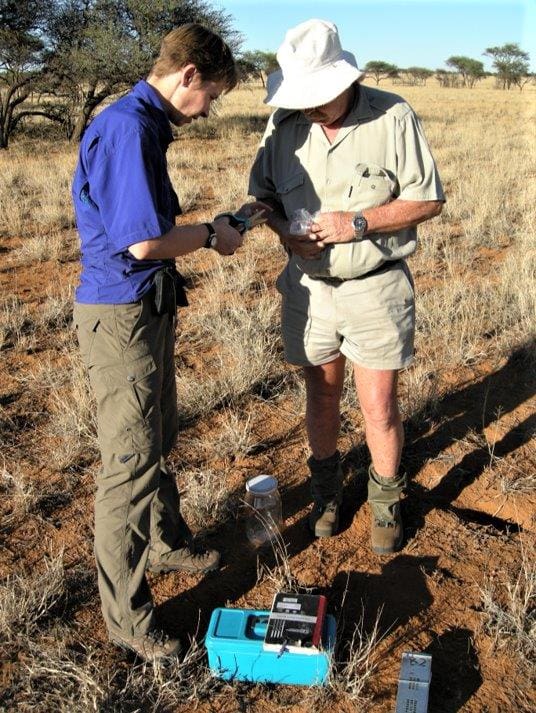 flowers and pollen, and how do they get back to their hives? Are they really all female? Why are some species so successful while others are continuously threatened and faced with extinction; especially considering that our world is changing much faster than ever before?
flowers and pollen, and how do they get back to their hives? Are they really all female? Why are some species so successful while others are continuously threatened and faced with extinction; especially considering that our world is changing much faster than ever before? 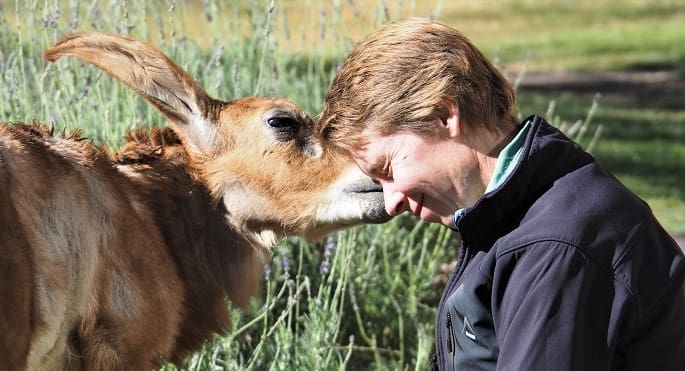
Once I understood that the answers to most of these questions have a strong genetic basis, I was hooked. My work allows me to search for the answers to many of these questions, and I work in some of the most extraordinary and beautiful places on earth (from our hot and dry desert and semi-desert regions to extremely wet and cold sub-Antarctic islands). I am privileged to work and interact with extremely talented people (both within and outside South Africa; old and young); there is not a day that I am not thankful for the way my life turned out. What is perhaps the strongest motivating factor is that I can make a difference in the lives of younger people (through education, working at the University of Johannesburg), and this is priceless.
Why you believe more women should pursue a career in science?
The first thing to say is that I believe there is nothing that any person can’t do if they apply their mind (and time) to it. We often set our own ceilings based on the general beliefs that society 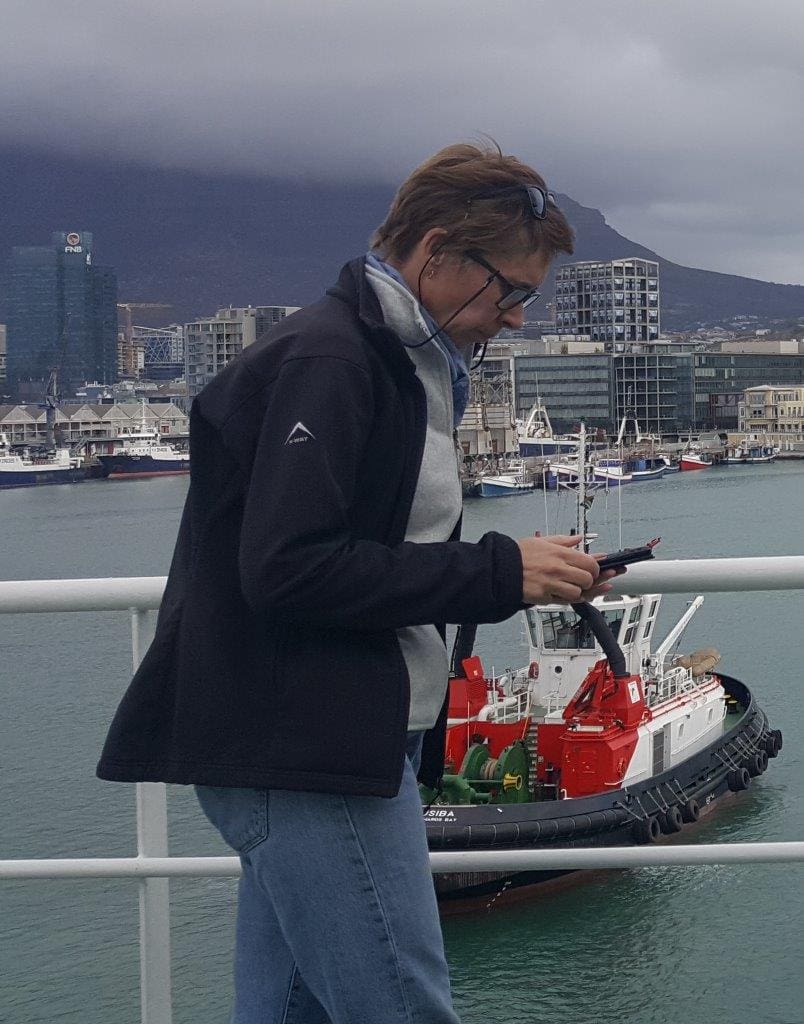 or others impose on us; and it is crucial that we break through these (non-real) boundaries. STEM fields are a case in hand. This is especially true for woman, who traditionally were considered homemakers or child-carers. In STEM specifically, fields such as mathematics, physics and engineering, and traditionally more field-based disciplines such as zoology, botany, or oceanography, are seen as more suited to men (either because women were not traditionally considered as analytically strong, capable to work in the field, or for that matter, be away from home for any period of time). It is critical that any person (both men and women) should carefully consider what they enjoy, what their specific strengths are (be that a STEM career for a woman, or as a child carer / homemaker for a man), and then pursue that with all their strength and passion. Personally, I was initially directed into a field that I had no interest in (because I could not answer questions asked regarding where I would work if my husband lived in a small town), and from a personal perspective I strongly urge and support woman that want to step out of the “beaten track”, i.e., what is typically expected from you by society, and follow what they are passionate about.
or others impose on us; and it is crucial that we break through these (non-real) boundaries. STEM fields are a case in hand. This is especially true for woman, who traditionally were considered homemakers or child-carers. In STEM specifically, fields such as mathematics, physics and engineering, and traditionally more field-based disciplines such as zoology, botany, or oceanography, are seen as more suited to men (either because women were not traditionally considered as analytically strong, capable to work in the field, or for that matter, be away from home for any period of time). It is critical that any person (both men and women) should carefully consider what they enjoy, what their specific strengths are (be that a STEM career for a woman, or as a child carer / homemaker for a man), and then pursue that with all their strength and passion. Personally, I was initially directed into a field that I had no interest in (because I could not answer questions asked regarding where I would work if my husband lived in a small town), and from a personal perspective I strongly urge and support woman that want to step out of the “beaten track”, i.e., what is typically expected from you by society, and follow what they are passionate about.
Latest research or study you’re working on?
 I am currently involved in a number of larger projects which aim to understand how species (individuals / populations) respond to change. One such project is on sub-Antarctic Marion Island (funded through the South African National Antarctic Programme), where we are assembling the full genomes of a number of macroinvertebrate species, with the ultimate aim to understand genes under selection, and how biotic and abiotic factors shape the genetic diversity on oceanic islands. In South Africa, and in collaboration with national (SANBI) and international partners (an NSF/NRF funded project), we are investigating how reptile species adapt to changing and transformed landscapes, and what the downstream impacts are on their genes, morphology and behaviour. Across the African continent, and in collaboration with the Research Centre in Biodiversity and Genetic Resources (Portugal), we are documenting the spatial genetic patterns in a number of economically important larger antelope species (such as roan- and sable antelope); our work here directly informs South African policies on translocations.
I am currently involved in a number of larger projects which aim to understand how species (individuals / populations) respond to change. One such project is on sub-Antarctic Marion Island (funded through the South African National Antarctic Programme), where we are assembling the full genomes of a number of macroinvertebrate species, with the ultimate aim to understand genes under selection, and how biotic and abiotic factors shape the genetic diversity on oceanic islands. In South Africa, and in collaboration with national (SANBI) and international partners (an NSF/NRF funded project), we are investigating how reptile species adapt to changing and transformed landscapes, and what the downstream impacts are on their genes, morphology and behaviour. Across the African continent, and in collaboration with the Research Centre in Biodiversity and Genetic Resources (Portugal), we are documenting the spatial genetic patterns in a number of economically important larger antelope species (such as roan- and sable antelope); our work here directly informs South African policies on translocations.

Student: Daniela Monsanto

Colleagues & Students at a conference
Students often ask me about their future careers, what they can do with a BSc degree (or broader, a Science degree), or where they will find employment. And my answer is always the same: You can be whatever you want to be. The ultimate aim of science education should be to train students to critically assess situations, to learn how to solve complex problems, and to find solutions to questions. If you have mastered this skill, you can become the President of South Africa, an artisan, an entrepreneur, or a brilliant scientist.
Presentation on Youtube: UJ zoologist on the management and eradication of invasive species
Profile on Wikipedia and on Researchgate
Follow Bettine on Twitter @bettinevv
Visit ![]() website www.molzoolab.co.za
website www.molzoolab.co.za






